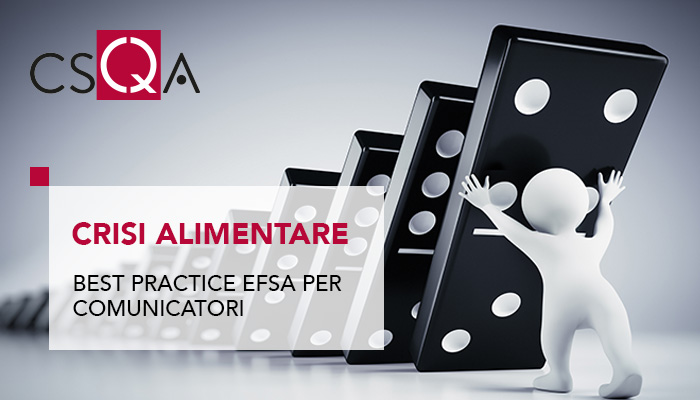
EFSA's Italian focal point has published the Italian translation of the best practices for food crisis communicators " How to communicate during food or feed safety incidents" , published by EFSA in 2023.
The recommendations are aimed at all those who communicate (directly or indirectly) with the external public during a food or feed incident or crisis.
They are mainly intended for EU Member State organizations responsible for food and feed safety assessment and/or management, but may also be useful for other interested public organisations.
Broadly speaking, a crisis is an event that threatens to have significant and lasting negative repercussions on an organization's reputation, financial condition, or future prospects .
For example, among the types of crises we may have to deal with in the current period, it is certainly possible to include cyberattacks .
During a crisis, the stakes are extremely high, and one wrong communication response has the potential to disrupt the organization. However, if the right decisions are made, a crisis can be turned to the benefit of the organization and turn into an opportunity.
The definition of crisis can vary from country to country and from institution to institution.
EFSA, in consultation with the Communications Experts Network (CEN), has developed recommendations to encourage consistent adoption of best practice during incidents related to EFSA's mandate.
The aim is to provide practical and clear recommendations for communicating with the outside public during a food or feed incident.
The document also provides a practical toolkit (Annex I) containing a set of templates, checklists and materials that can be adapted to the context of the organization and used for crisis communication. The first document is a quick reference guide that can be used as a communications checklist during an incident or crisis situation.
The communication activity during an incident should follow the following six principles:
- Take control of communicating about the situation, even if the facts are still uncertain. This will help prevent the spread of false or inaccurate information.
- Communicate quickly and regularly to protect human health
- Identify the subjects to whom you need to communicate and the ways in which to reach them
- Be clear and transparent
- Never underestimate the possible impact of an accident
- Collaboration – remember that crises do not stop at international borders.